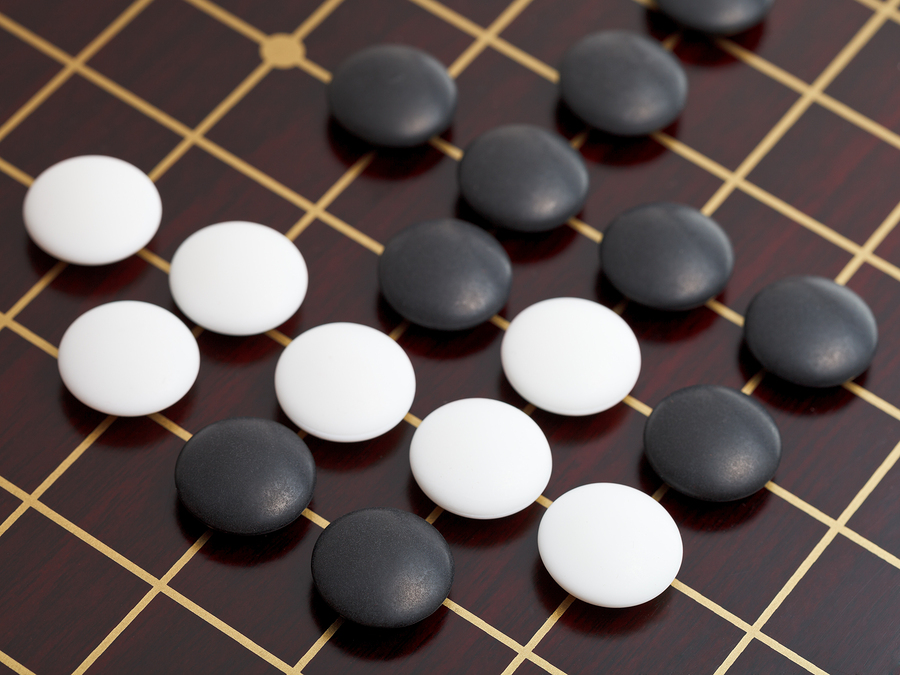Google's AI program masters 'Go' ahead of Facebook
An artificial intelligence program from Google beats the European champion of Go


Google has created an artificial intelligence (AI) program sophisticated enough to master the notorious boardgame Go, beating Facebook's own attempt to do so.
The Chinese game has long been the go-to challenge for AI systems, more difficult to beat than chess due to the number of scenarios the game can result in.
Now, DeepMind claims to have created software capable of beating advanced human players at the game, triumphing over Europe's Go champion five wins to nil, despite the game generating more possible positions than there are atoms in the universe.
Demis Hassabis, co-founder and chief executive of DeepMind, said: "This complexity is what makes Go hard for computers to play, and therefore an irresistible challenge to artificial intelligence researchers, who use games as a testing ground to invest smart, flexible algorithms that can tackle problems, sometimes in ways similar to humans. But to date, Go has thwarted AI researchers; computers still only play Go as well as amateurs."
The system, AlphaGo, combines an advanced tree search with deep neural networks, rather than traditional AI methods with one search tree over all possible positions.
Those neural networks were taught 30 million moves until the system was able to predict human moves 57 per cent of the time. It then underwent 'reinforcement learning', adjusting strategies based on the outcome of thousands of games.
Facebook CEO Mark Zuckerberg only yesterday announced that the company's research team is also close to creating an AI capable of beating the game.
Get the ITPro daily newsletter
Sign up today and you will receive a free copy of our Future Focus 2025 report - the leading guidance on AI, cybersecurity and other IT challenges as per 700+ senior executives
"Scientists have been trying to teach computers to win at Go for 20 years," he said. "We're getting close, and in the past six months we've built an AI that can make moves in as fast as 0.1 seconds and still be as good as previous systems that took years to build."
Zuckerberg previously announced he would create his own AI assistant in 2016, though this would be a 'simple' system designed to help with tasks at work and around the house.
Last year, Facebook's computer vision team created a bot which relied on pattern-matching technology, capable of predictive learning, with 90 per cent accuracy in determining outcomes.
"We are thrilled to have mastered Go and thus achieved one of the grand challenges of AI," Google's Hassabis continued. "However, the most significant aspect of all this for us is that AlphaGo isn't just an 'expert' system build with hand-crafted rules; instead it uses general machine learning techniques to figure out for itself how to win at Go.
"While games are the perfect platform for developing and testing AI algorithms quickly and efficiently, ultimately we want to apply these techniques to important real-world problems. Because the methods we've used are general-purpose, our hope is that one day they could be extended to help us address some of society's toughest and most pressing problems, from climate modelling to complex disease analysis."
AlphaGo will play a five-game challenge match against Lee Sedol, the world's top Go player, in March.
Caroline has been writing about technology for more than a decade, switching between consumer smart home news and reviews and in-depth B2B industry coverage. In addition to her work for IT Pro and Cloud Pro, she has contributed to a number of titles including Expert Reviews, TechRadar, The Week and many more. She is currently the smart home editor across Future Publishing's homes titles.
You can get in touch with Caroline via email at caroline.preece@futurenet.com.
-
 Asus ZenScreen Fold OLED MQ17QH review
Asus ZenScreen Fold OLED MQ17QH reviewReviews A stunning foldable 17.3in OLED display – but it's too expensive to be anything more than a thrilling tech demo
By Sasha Muller
-
 How the UK MoJ achieved secure networks for prisons and offices with Palo Alto Networks
How the UK MoJ achieved secure networks for prisons and offices with Palo Alto NetworksCase study Adopting zero trust is a necessity when your own users are trying to launch cyber attacks
By Rory Bathgate